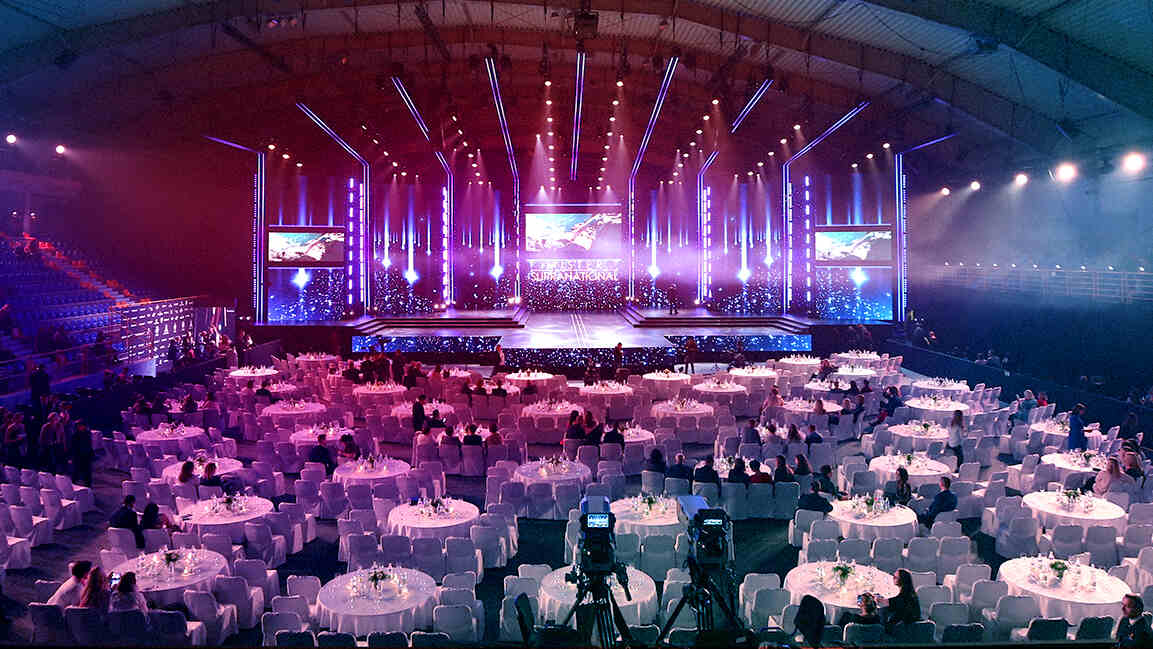- | 10:00 am
Events are a key driver of commercial strategy, says Radisson’s Tim Cordon
Tim Cordon says the hotel group hosts events and co-creates experiences with planners and aims to be the partner of choice for regional event organizers

Driven by strategic investments, diversification across various industries, and rapid infrastructure development, the Middle East, particularly the UAE, Saudi Arabia, and Qatar, has emerged as a significant global player in the events sector, hosting everything from Formula 1 races and concerts to large-scale conferences.
The region’s Meetings, Incentives, Conventions, and Exhibitions (MICE) market is projected to grow at a compound annual growth rate (CAGR) of 8.83%, reaching $8.58 billion by 2029.
In response to the region’s emerging status within the global events industry, hotels have quickly expanded to meet the increasing demand.
“Events are a key driver of our commercial strategy. We actively tailor our offerings and marketing efforts around major regional events,” says Tim Cordon, COO of Middle East, Africa, and South East Asia Pacific at Radisson Hotel Group (RHG).
Through Radisson Meetings and its industry-specific event solutions—from Esports and healthcare to automotive and entertainment—Cordon says the hotel group hosts events and co-creates experiences with planners. “We aim to be the partner of choice for regional event organizers.”
STRONG MOMENTUM
The hotel group is experiencing strong momentum across EMEA and APAC, with over 1,520 hotels in operation and under development. In 2024, it added more than 300 hotels through new openings and signings. In the Middle East, it has about 100 hotels in operation and under development, and it is on track to reach 150 hotels by 2030.
“Nearly half of our regional footprint is in Saudi Arabia, where we have close to 50 hotels in operation and under development,” says Cordon.
Radisson’s approach to booking has been balanced, says Cordon, using its direct channels and taking advantage of third-party booking platforms.
“We’ve made significant strides in direct booking channels, driven by our app, dynamic pricing models, and the relaunch of Radisson Rewards with over 20 million members and a growing share of direct bookings.”
“At the same time, we recognize the value of the travel trade,” he adds.
It provided agents with easy-to-use platforms, access to member benefits, and training tools…Nearly one in two bookings is generated through our RHG commercial engine, which underscores the power of our holistic distribution strategy.”
OPPORTUNITIES AND CHALLENGES
According to Cordon, the region presents diverse opportunities and challenges. For example, he says, in Kuwait, the return of business travel drives renewed investor confidence. Qatar is navigating the post-World Cup transition with strong potential in meetings and events, and the UAE remains a highly competitive but resilient market, fuelled by tourism and large-scale events. In Oman, experiential and cultural tourism opens upscale and resort development doors, and Bahrain holds steady as a key MICE and leisure destination within the GCC.
“Saudi Arabia continues to lead regional growth, and our strategy goes beyond giga-projects to include midscale and upscale hotels in secondary cities, aligned with Vision 2030,” he says.
Cordon, a key figure in RHG’s growth and success in the MEA region, stresses that operational efficiency is core to its value proposition. It has invested in systems that deliver results at scale, such as Pulse by RHG for data-driven decision-making and EMMA, its cloud-based platform unifying PMS, CRM, and reservations.
“We’re also leveraging AI to automate repetitive tasks, streamline revenue management, and optimize workflows, whether dynamic M&E pricing or back-of-house kitchen operations.”
Additionally, its new digital housekeeping and inventory management systems reduce waste and improve productivity, and The Club, its international commercial community, enables local teams to apply global best practices.
Looking forward, Cordon says, despite global uncertainties, RHG remains optimistic. “Leisure and bleisure demand continues to thrive, business travel rebounds and destination-led growth in markets like Saudi Arabia and Vietnam remains strong.”
In response, he says Radisson is expanding serviced apartments for extended stays, enhancing the digital guest experience, and introducing flexible hybrid offerings for evolving traveler needs.
“Hospitality is inherently resilient. As long as we remain close to our guests, adaptable in our operations, and forward-thinking in our development, we’ll continue to grow in 2025 and beyond,” adds Cordon.







































